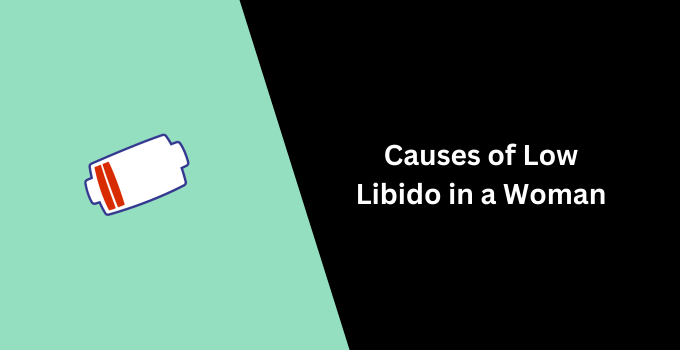Just as a garden’s bloom may falter under a shadow, your sexual desire might wane due to various underlying causes.
Hormonal imbalances, particularly during life transitions like menopause, can reduce your libido. You’re not alone if you’ve noticed certain medications, especially those for mood disorders, leave your sex drive less vibrant.
It’s not just about your body; your mind plays a key role too. Stress, mental health struggles, and past traumas can all cast a pall over your sexual interest.
Moreover, lifestyle factors such as chronic fatigue or the lack of intimacy in your relationship can further strain your desire.
It’s a complex interplay of physical, psychological, and emotional elements that can lead to a decrease in your libido.
Hormonal Imbalances
While you may not immediately recognize it, hormonal imbalances are a common culprit behind your low libido. This can manifest as Hypoactive Sexual Desire Disorder (HSDD), where you find your sexual fantasies dwindling and your interest in sex fading.
Hormone replacement therapy is sometimes considered to alleviate symptoms like Genitourinary Syndrome of Menopause (GSM), which can stifle sexual activity. Yet, hormone levels must be carefully monitored, as treatment can lead to side effects, including high blood pressure or chronic medical conditions.
It’s essential to consult a healthcare professional who can assess your symptoms and potentially recommend blood tests to determine if hormonal imbalances are the root cause of your sexual desire disorder.
Psychological Factors
Often, your low libido can be directly linked to psychological factors, such as enduring stress or unresolved emotional issues. Stress not only saps your energy but can also contribute to a loss of libido, turning your sex life into a source of frustration rather than pleasure. Depression, characterized by a profound loss of interest and enjoyment, can be particularly devastating. It can lead to a sexual desire disorder, making intimacy feel like a distant memory.
Factors that may affect your libido include:
- The impact of stress and anxiety on sexual concerns.
- How serotonin reuptake inhibitors (SSRIs), prescribed for depression, can lead to decreased sex drive.
- The role of emotional wellbeing in maintaining a healthy libido.
Addressing these psychological factors is vital for reclaiming your interest in intimacy.
Lifestyle Influences
Your lifestyle choices, including the consumption of alcohol and tobacco, can significantly impact your sexual desire. Factors like fatigue, perhaps from stress or caring for a new baby, often lead to a lack of interest in sex.
Making lifestyle changes such as incorporating regular exercise can improve your body image, mood, and consequently, your libido. If you’re dealing with painful sex or physical changes that contribute to low desire, consider exploring different sexual techniques with your partner or seeking advice from a sex therapist.
Medical Conditions
Lifestyle adjustments can pave the way for improvement, but underlying medical conditions can still play a pivotal role in diminishing your sex drive. The Mayo Clinic recognizes that health problems like diabetes, heart issues, and hormonal imbalances often contribute to sexual desire disorders. For instance, you might be battling a hypoactive sexual desire or other forms of sexual dysfunction without realizing the medical roots.
Medical conditions that often affect libido include:
- Chronic diseases like cardiovascular problems
- Hormonal imbalances such as underactive thyroid
- Mental health issues, particularly when treated with SSRIs
Medications for these conditions can also interfere with your sexual desire. If you’re experiencing a low sex drive, it’s important to consider these potential health-related causes and discuss them with your healthcare provider.
Medications and Treatments
Medication side-effects might be dampening your sex drive, particularly if you’re on antidepressants or other treatments with known sexual side effects. Selective serotonin reuptake inhibitors (SSRIs) such as paroxetine and fluoxetine are common culprits. They’re known to cause low sex drive, a form of sexual desire disorder. Switching to bupropion may help manage sexual dysfunction without sacrificing mental health.
The American College of Obstetricians and Gynecologists suggests reviewing your medications if you’re experiencing low libido. Treatment for hypoactive sexual desire disorder might involve FDA-approved options like Flibanserin or Bremelanotide, but they come with their own side effects. Hormone therapy, including controversial off-label testosterone use, may also be considered.
Always consult a healthcare provider to navigate the complex landscape of sexual dysfunction caused by SSRIs and other medications.
Frequently Asked Questions
Conclusion
In the end, you’ll find that the causes of low libido are as vast as the stars in the sky. They can range from hormonal imbalances to stress that could crush mountains. It’s essential you don’t blame yourself; instead, you should consult with a healthcare provider to unearth the root of the problem.
Remember, you’re not alone in this, and there’s a plethora of solutions out there waiting for you to discover. So, take heart, because with the right support and guidance, you can reignite the flame of desire.

